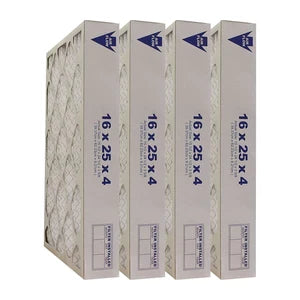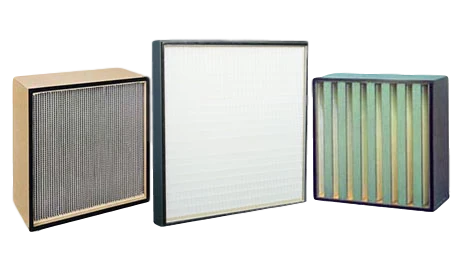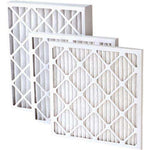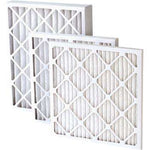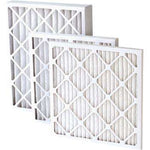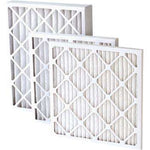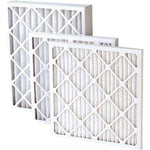You have no items in your shopping cart.
Winter is coming, and we’ve already started seeing some cold nights in the midwest. But what about your furnace? Is it ready for winter? One way to tell is by looking at your filter. While not all filters are created equal, there are some things you can do to ensure that your heating system is getting the best possible air quality while using less energy than ever before.
Can an HVAC Filter Help You Save Money?
Yes, the answer is a resounding yes! A home air filter can help you save money by keeping your furnace running efficiently and reducing allergens.
The average homeowner spends around $637 per year on energy bills, but that can be reduced by installing a high-quality HVAC filter that will last for years to come.
Air filters aren’t one-size-fits-all.
Before we elaborate this, not all filters are created equal. There are a variety of different sizes, shapes and designs that can be found on the market today. And each one has its own unique purpose and benefits.
So if you’re deciding which filter to purchase for your HVAC system, it pays to know what types of air filtration needs you have and how those will impact the type of filter you buy. For example:
- If your home or office is located in an area where there’s a high amount of dust in the air (like near construction sites), then a HEPA filter would be best suited for your needs since it’ll trap even more dirt particles than any other type of filter out there.
The higher the MERV, the more efficient it is considered.
- A 3- or 4-star filter will usually suffice for most residential settings.
- Filters with a rating of 5 or higher may be necessary in an office space with employees who suffer from allergies or asthma, as they can help reduce dust and other particulates that may trigger illness.
1. Understand Your Needs
When it comes to HVAC filters, there are a few things you should understand before buying one:
- The type of filter you need depends on the size of your home and how dusty it is. The more dust in your area, the more often you'll want to replace your filter.
- How often you change your filter depends on how much money you want to spend on replacement filters. If they're pricey or hard to find, then it makes sense not to wait until the last minute before buying one!
2. Upgrade to a More Efficient Filter
When you are shopping for a new filter, it is important to know that there are two different types of MERV ratings like merv 8, merv 11, merv 13. The first is based on how much dust and debris the filter can capture. The second is based on how well a filter captures particles of different sizes.
If you have an older HVAC system, it may be time for your filters to be upgraded. This could save you money in the long run because more efficient filters will allow your system to work less hard and last longer!
3. Consider Alternative Options
Alternative options to replace your HVAC filters include:
-
Changing the location of your vents. By moving them, you can make sure that you're not heating or cooling areas that don't need it. This is also useful if you're using an attic fan, which blows hot air out of your home and into the attic—a good way to keep your house cool on hot days without needing AC.
- Using an energy-efficient window shade or roller shade indoors instead of an expensive set of blinds or curtains with thick fabric. They'll block drafts while still letting light in through windows, saving money on heating bills in winter and cooling bills in summer. The best part is they cost much less than typical window coverings like drapes would!
- Using hardwood floors instead carpeting throughout most areas (if applicable). Carpeting traps warmth from escaping through feet pounding against floorboards; wood absorbs it instead so heat doesn't escape as quickly as it does with carpeted surfaces
Choosing the best furnace filter for your home depends on a number of factors.
The type of air filter you need will depend on the amount of dust and pollen in your area, and may vary from season to season. If you live in an area with high levels of pollution, consider investing in an electrostatic or HEPA filter for added protection against harmful particles.
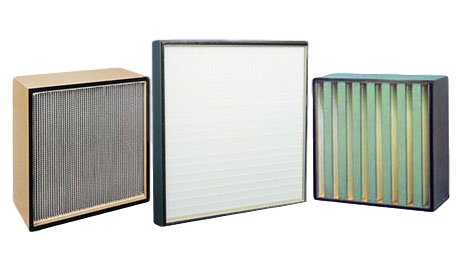
If you're looking for something more affordable, a standard fiberglass filter might be right for you. These provide basic filtration with very good airflow since they're made from lightweight materials like cotton or synthetic fibers (though some cheaper versions may be made from recycled paper). They are also easy to replace when necessary because many models come pre-assembled with gaskets already attached so all that's left is putting it into place!
Conclusion
It’s important to remember that the best furnace filter for your home depends on a number of factors. It doesn’t make sense to spend money on a high-end filter if you don’t need one or if you won’t be able to use it properly.
Before buying anything, first consider why you are looking into filters in the first place: is it because of allergies or asthma? If so, what type of allergens are bothering you? Do you have pets or small children who play around in front of vents often? Knowing how much dust and dirt get into your home each day will help determine which types will work best for everyone involved!
Winter is coming, and we’ve already started seeing some cold nights in the midwest. But what about your furnace? Is it ready for winter? One way to tell is by looking at your filter. While not all filters are created equal, there are some things you can do to ensure that your heating system is getting the best possible air quality while using less energy than ever before.
Can an HVAC Filter Help You Save Money?
Yes, the answer is a resounding yes! A home air filter can help you save money by keeping your furnace running efficiently and reducing allergens.
The average homeowner spends around $637 per year on energy bills, but that can be reduced by installing a high-quality HVAC filter that will last for years to come.
Air filters aren’t one-size-fits-all.
Before we elaborate this, not all filters are created equal. There are a variety of different sizes, shapes and designs that can be found on the market today. And each one has its own unique purpose and benefits.
So if you’re deciding which filter to purchase for your HVAC system, it pays to know what types of air filtration needs you have and how those will impact the type of filter you buy. For example:
- If your home or office is located in an area where there’s a high amount of dust in the air (like near construction sites), then a HEPA filter would be best suited for your needs since it’ll trap even more dirt particles than any other type of filter out there.
The higher the MERV, the more efficient it is considered.
- A 3- or 4-star filter will usually suffice for most residential settings.
- Filters with a rating of 5 or higher may be necessary in an office space with employees who suffer from allergies or asthma, as they can help reduce dust and other particulates that may trigger illness.
1. Understand Your Needs
When it comes to HVAC filters, there are a few things you should understand before buying one:
- The type of filter you need depends on the size of your home and how dusty it is. The more dust in your area, the more often you'll want to replace your filter.
- How often you change your filter depends on how much money you want to spend on replacement filters. If they're pricey or hard to find, then it makes sense not to wait until the last minute before buying one!
2. Upgrade to a More Efficient Filter
When you are shopping for a new filter, it is important to know that there are two different types of MERV ratings like merv 8, merv 11, merv 13. The first is based on how much dust and debris the filter can capture. The second is based on how well a filter captures particles of different sizes.
If you have an older HVAC system, it may be time for your filters to be upgraded. This could save you money in the long run because more efficient filters will allow your system to work less hard and last longer!
3. Consider Alternative Options
Alternative options to replace your HVAC filters include:
-
Changing the location of your vents. By moving them, you can make sure that you're not heating or cooling areas that don't need it. This is also useful if you're using an attic fan, which blows hot air out of your home and into the attic—a good way to keep your house cool on hot days without needing AC.
- Using an energy-efficient window shade or roller shade indoors instead of an expensive set of blinds or curtains with thick fabric. They'll block drafts while still letting light in through windows, saving money on heating bills in winter and cooling bills in summer. The best part is they cost much less than typical window coverings like drapes would!
- Using hardwood floors instead carpeting throughout most areas (if applicable). Carpeting traps warmth from escaping through feet pounding against floorboards; wood absorbs it instead so heat doesn't escape as quickly as it does with carpeted surfaces
Choosing the best furnace filter for your home depends on a number of factors.
The type of air filter you need will depend on the amount of dust and pollen in your area, and may vary from season to season. If you live in an area with high levels of pollution, consider investing in an electrostatic or HEPA filter for added protection against harmful particles.

If you're looking for something more affordable, a standard fiberglass filter might be right for you. These provide basic filtration with very good airflow since they're made from lightweight materials like cotton or synthetic fibers (though some cheaper versions may be made from recycled paper). They are also easy to replace when necessary because many models come pre-assembled with gaskets already attached so all that's left is putting it into place!
Conclusion
It’s important to remember that the best furnace filter for your home depends on a number of factors. It doesn’t make sense to spend money on a high-end filter if you don’t need one or if you won’t be able to use it properly.
Before buying anything, first consider why you are looking into filters in the first place: is it because of allergies or asthma? If so, what type of allergens are bothering you? Do you have pets or small children who play around in front of vents often? Knowing how much dust and dirt get into your home each day will help determine which types will work best for everyone involved!
